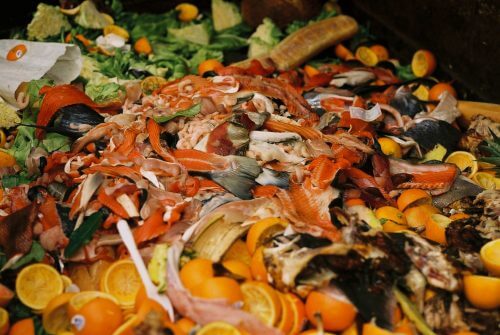The first comprehensive global review of food waste shows that the situation is just as bad as you'd expect

We waste enormous amounts of food: from products that rot in delivery trucks to overstuffed dishes in restaurants. In fact, researchers inPotsdam Institute for Climate Impact Research In Germany they found that the average amount of wasted food per person per day increased from 310 kilocalories in 1965 to 510 kilocalories in 20100. It's about the same as going from throwing six apples in the bin to throwing ten apples - every single day. The researchers predict that by 2050 the waste could increase up to 850 kilocalories.
It is impossible to accurately calculate the amount of wasted food, so the team from Potsdam used an indirect method: it checked the food surplus in each country, that is, the difference between the amount of food that a country produces or imports for consumption purposes and the total calories that its residents consume. They calculated the numbers of 169 countries (98% of the world's population) and found that in 2010, the last year for which data is available, the amount of food available in the world increased by 20% of the amount that the human population needed. In general, the higher the standard of living in a country, the more food it wastes. The results were published inArticle In the Journal of Environmental Sciences and Technology.
Is all unnecessary food really thrown away? Not necessarily, he says Prajal Pradhan, a geo-ecologist who participated in writing the article. People tend to eat more than they need (a complex and subjective calculation in its own right), and some of the leftovers are used to feed livestock. This means that the study probably overestimates food waste. But according to Fardan, the study incorporates fluctuations in body weight data, a figure that somewhat compensates for the fact that many people simply eat too much.
However, this overestimation does not weaken Fardan's findings, says Matti Komu, a professor of civil and environmental engineering at Aalto University in Finland who did not participate in the study. "Food surplus can be used as a simplistic estimate of food waste, but it's a good estimate."
Still there is a positive in this state of waste. If we can afford to throw away food, we can also feed the world's population, which is expected to reach at least nine billion people in 2050, without the need for a tremendous effort in agricultural production.

3 תגובות
This is very bad - because in a large part of the world people are dying of hunger.
As I know agriculture in Israel, in my opinion the waste is much bigger than that. Because of the antics of consumers who demand only perfect produce, the average farmer throws more in the trash than sells.
And let's not forget our wonderful religion which on the one hand is supposed to help the poor in charity but on the other hand there is a "tithe" and ten percent of all food goes to the garbage can.
Proper conduct of everyday life requires food waste - there is nothing wrong with that as long as the waste is not intentional.
Regarding the world's hungry, the cause of hunger is not food waste in the West, but population growth beyond the agricultural capacities of developing countries.
The verse "Do not corrupt" is also interpreted incorrectly from the source according to which it is forbidden to cut down edible fruit trees for the purpose of building a siege in war.
The conclusion at the end of the article is wrong: we throw away a lot of food because we don't transfer the excess
to needy populations - and there is no reason to believe that we will behave differently in 2050. Those who bought food with "good money"
He will not rush to spend more of his money to pass it on to someone else - and those who do not have money to produce and buy food do not have it either
the means to collect, pack and import food from a distant country.
Placing the emphasis on increased agricultural production, which is not the problem, is the mistake.